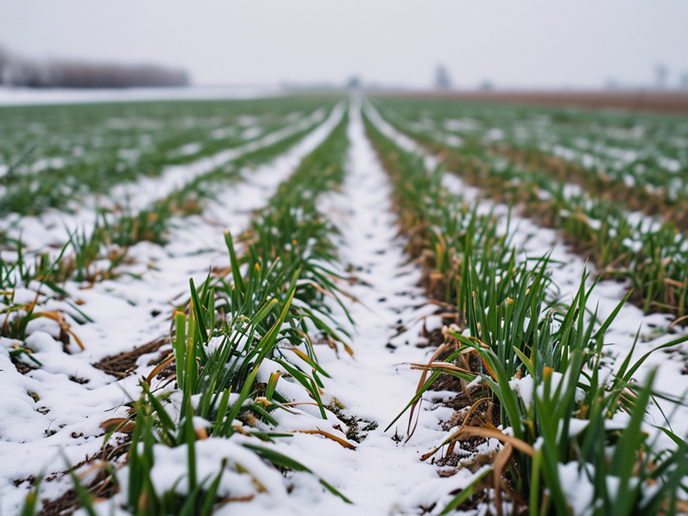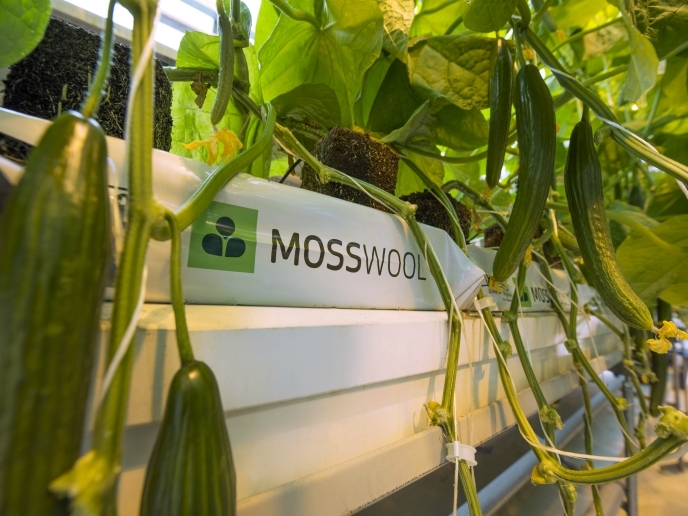Thermal blanket molecules protect plants against cold snaps
Some plants suffer considerably from cold snaps. Improving resilience to cold can boost productivity, lengthen the growing season and enable crops to grow in areas where they were previously at risk of frost damage. On a larger scale, it could improve food security. The EU-funded BoostCrop(opens in new window) project identified natural heat-producing molecules that can be applied to crops in the field. “We call them molecular heaters; they are like thermal blankets that protect the crop from sudden cold spells,” explains project coordinator Vasilios Stavros, professor of Physical Chemistry at the University of Birmingham(opens in new window), United Kingdom. “We identified a specific molecule in plants that absorbs light in certain regions of the spectrum that doesn’t interfere with the plant’s photosynthesis. The plant converts that light energy into heat that is then distributed on the leaf.” “That was our starting molecule. We knew it was non-toxic and we thought we would try to design new molecules around this natural molecule that can be included in a foliar spray.”
Bioinspired heat molecules for plant growth
Chemists, physicists, biologists came together with an agrotechnology SME. With the help of a chemist who has focused on creating molecules inspired by nature, the team considered which new molecules could be designed to better convert light to heat on leaves. Using a combination of green synthetic chemistry, spectroscopy and theoretical modelling, the team developed several novel molecules and tested them under simulated conditions in a growth chamber.
Whittling down the candidate molecules
“We successfully demonstrated in the lab that a significant thermal increase to both plant and leaf occurred following application of the molecule and under UV-A/B radiation,” Stavros notes. “We found that the molecules’ quick energy conversion to heat is crucial for effective molecular heating technology.” An earlier EU-funded project NatuCrop looked at natural crop protection against heat and other stresses to improve yield. However, Stavros explains that some potential molecular heaters were almost impossible to synthesise in a lab. Others were found to be toxic and had to be discarded, leaving three new candidate molecules that passed all initial safety tests. The candidate molecules had to be formulated into a product that could be sprayed on plants and spread evenly along the leaf without bubbling up. The formulation also had to be stable for around 2 years in a container. However, some candidate molecules break apart or degrade under 2 to 3 hours of irradiation, which would also render them useless in the field.
Field tests on crops
After testing in the lab, the candidate molecules were field-tested on tomato, cucumber and lettuce in Spain, and spring wheat, maize and sugar beet in Germany. Over long weeks of experiments, biologists monitored the molecules that produced the biggest temperature change. The field trials were affected by the COVID-19 pandemic as the team had to target a particular time of the year when there is potential for frost damage. Stavros says: “With COVID, we missed two growth seasons.” Nonetheless, during these trials an increase in yield was noted and was as good as or better than commercial biostimulators. By the end of the 5-year project: “We could synthesise up to a kilogramme of the molecule of interest and carry out successful field trials, which is quite incredible,” Stavros remarks. The next phase is commercialisation – preliminary cost analysis shows it to be viable, he adds.





